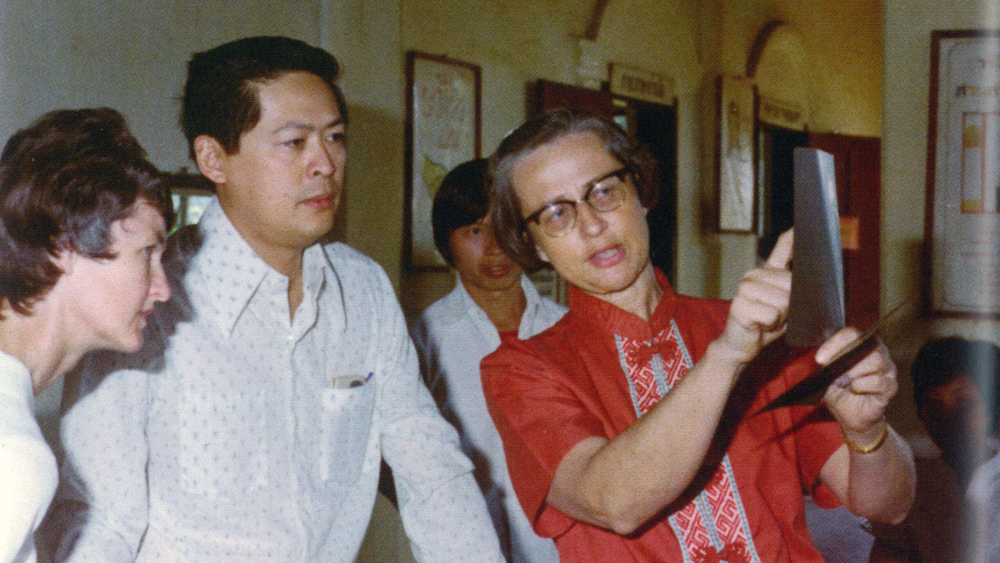When Greg Clarke took over as CEO of The Leprosy Mission Australia last month, people asked him: “Oh, leprosy? Is that still around? Didn’t Jesus fix that?”
“Well, it is a very Jesus-y thing that’s going on here as we try to eliminate leprosy,” he agrees.
“Then they say, ‘Oh, it must be very infectious.’ But I’ve learned that 95 per cent of people are naturally immune to the leprosy bacteria, so it’s very low risk. And also with these new drugs, if taken, you are not infectious within 72 hours.”
Clarke, formerly CEO of Bible Society Australia, was very moved by reading about the life-changing work of Australian surgeon Grace Warren in her autobiography, Doctor Number 49. Dr Warren, now a sprightly 94, recently welcomed Clarke at her home in a retirement village in Sydney.

Greg Clarke meets Dr Grace Warren at her home.
She told Eternity via Zoom that when she first started working with leprosy patients in Hong Kong in 1959, doctors had the drugs to stop the infection, but they had no idea about doing anything to correct deformities or disabilities.
“It soon became obvious that people who had deformities and disabilities were not accepted to work in the community, even if they have no other signs of leprosy,” said Warren.
Dr Warren’s innovative work in hand, foot and facial surgery – following in the footsteps of her mentor Paul Brand, who pioneered leprosy treatment in India – helped turn around attitudes that leprosy was a lifelong disease with no hope, and restored sufferers to a useful functional life.
Leprosy damages nerves, leading to loss of sensation, which means that even when cured, people have a tendency to burn themselves and damage their feet, hands and faces because they can’t feel pain.
“In 1959, it was widely believed that you never came off the books once you had leprosy. You stayed on treatment for the rest of your life. Your feet had certain problems. The experts said nothing could be done about it. They would slowly get worse until the foot had to be amputated. Well, you see, we disproved all that,” Warren explains.
“The Christian principle of seeking the outcast is a big principle of The Leprosy Mission – no one is outcast in the kingdom of God.” – Greg Clarke
In his new role, Clarke wants to get the story out that Australians can help knock leprosy on the head within a generation – zero transmission, zero disability, zero stigma.
“The Christian principle of seeking the outcast is a big principle of The Leprosy Mission – no one is outcast in the kingdom of God. And Leprosy Mission really puts that into action. It’s the expression of that theological principle with its sleeves rolled up: get on and seek and seek the people who are outcast and care for them like Jesus would have cared for them.”
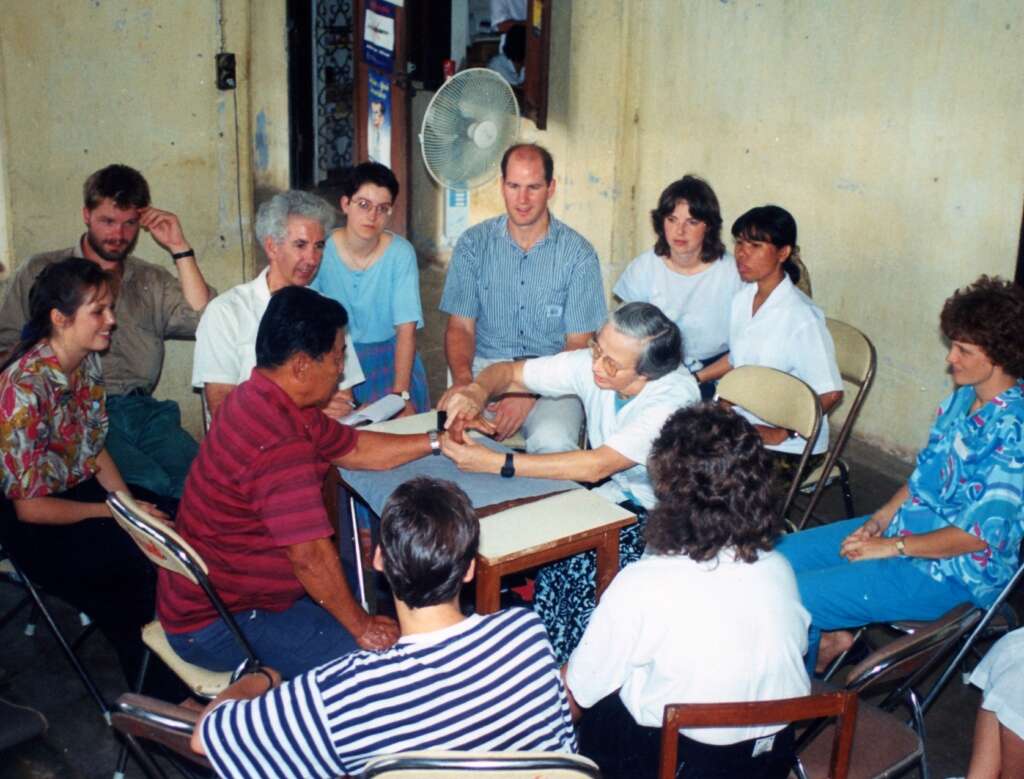
Grace Warren teaching in Chiang Mai, Thailand.
With Australians still querying whether goods bought in the Leprosy Mission shop – which are made by people who suffered from leprosy and other disabilities – are safe, part of the challenge is educating Australians to help them have a better understanding of the disease.
“There are still around 200,000 people a year diagnosed with leprosy worldwide. From the stats that I’ve seen, around two million cases are active at any given time,” says Clarke, adding that these are concentrated in India, Nepal, Brazil, Indonesia, Nigeria, Ethiopia and Sudan.
The challenge for The Leprosy Mission globally, he says, is how to facilitate early detection because if leprosy is not recognised in its early stages, it leads to deformities and disabilities, which then lead to stigma and social ostracism.
In her decades of work, Dr Warren brought hope and healing to thousands of people worldwide with her inventive surgical skills.
As she recounts in her book, Doctor Number 49, she came from a remarkable family who taught her how to make things and improvise. Her brother David became famous as the inventor of the Black Box flight recorder. Her father, Bert Warren, was the superintendent at what’s now called Ngukurr (then Roper River) in the Northern Territory from 1913-1932. “He drove from Sydney to Roper River across the backcountry. At the back of Goondiwindi, they ran into a tree stump, which took out some part of the car, which he fixed with a kerosene tin,” writes Warren.
Her sister Helen did beautiful embroidery and insisted on the back being as neat as the front when they embroidered together during the war. “She little knew that she was training a surgeon to do nice neat work and tiny stitches, enabling me to reconstruct hands and faces,” she writes.
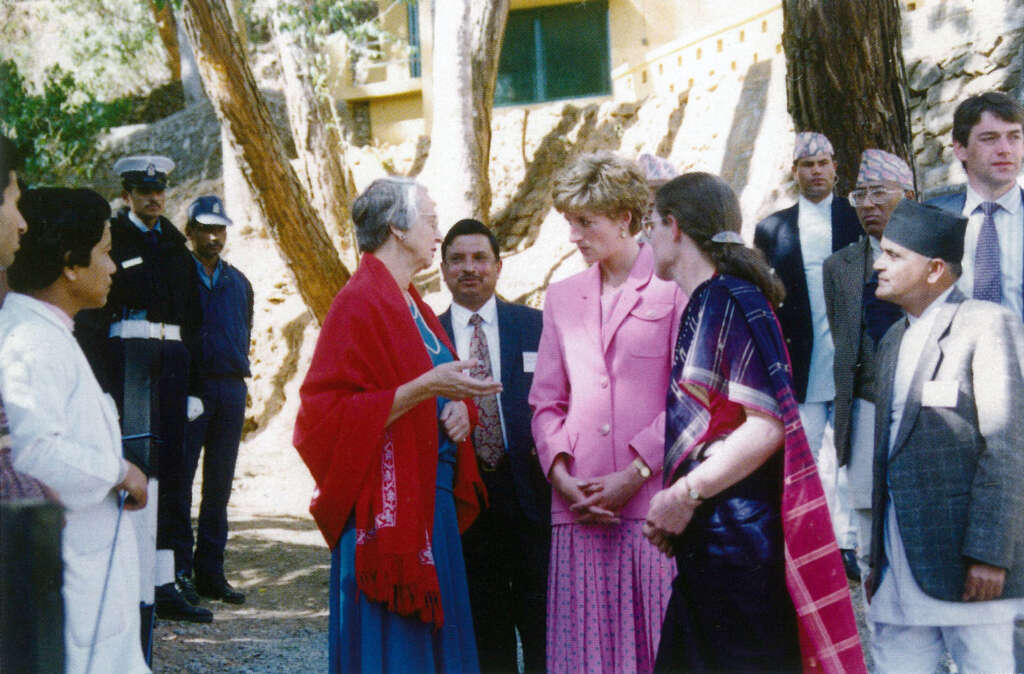
Grace Warren speaks to Princess Diana, Dr Ruth Butlin and other staff at Anandaban Leprosy Hospital, Nepal 1993.
Having learned and adapted surgical techniques to suit the problems of her leprosy patients, Dr Warren went on to teach her new methods for tendon transfer and restoration of facial features in about 20 countries. (Incidentally, she discovered a fast way to get through Customs was prominently displaying a book about leprosy in her luggage and she would be waved through!)
She met the (former) King of Thailand, the High Commissioner of Pakistan (who gave her the Star of Pakistan for her work) and Princess Diana in Nepal.
“Diana did an incredible amount of good at that point. She sat on the patients’ beds and talked to them, which was a big thing. Having royalty make that gesture of acceptance was really powerful,” says Warren.
Dr Warren’s first trip away from Hong Kong was to Taiwan, which had a lot of leprosy patients who had fled communist China, but no one who knew anything about leprosy at that stage. Remarkably, as she went around the island teaching nurses how to treat their patients, she also taught an American plastic surgeon how to do tendon transfers in a hand.
“It’s remarkable because no one had taught me – I’d learned it myself. And this was God’s gift,” says Warren, who had sought God’s leading in her wish to be involved in overseas mission from a young age.
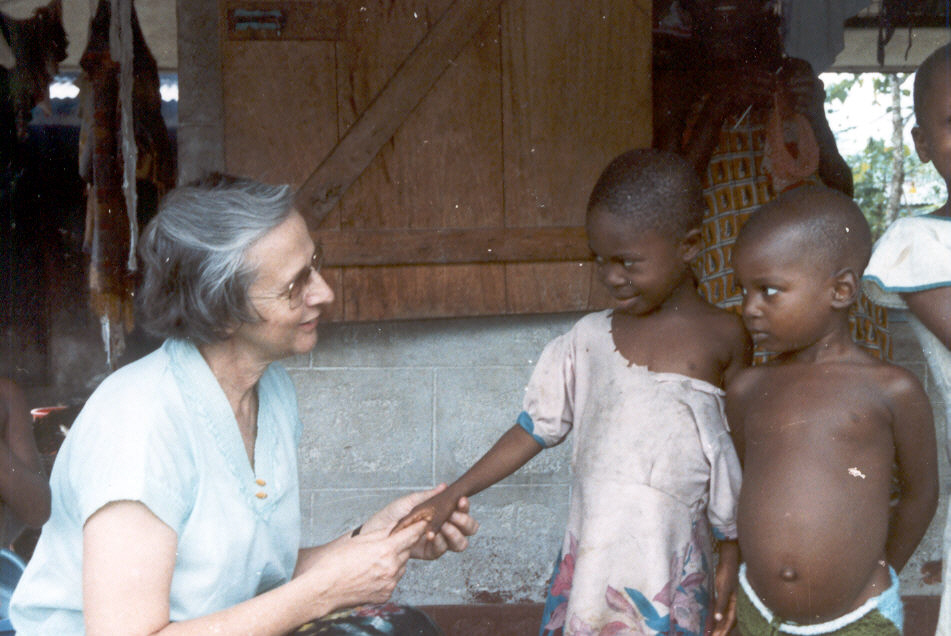
Dr Grace Warren makes friends in Nigeria.
Dr Warren explained that God opened the way for her to go into surgery because the medical establishment wouldn’t train a woman as a surgeon when she was young.
“Grace had to find a way to express her gifts when the system was against her,” explains Clarke.
Says Warren: “God led me step by step right from the beginning. In my fifth year at high school, I was told I’d never get my leaving certificate because my writing and spelling were so bad.”
Dr Warren retired from full-time service with The Leprosy Mission International in 1989 but continued her work until 2012, consulting and teaching in Australian and international clinics. Her expertise has benefited other conditions that affect the nerves, such as diabetes.
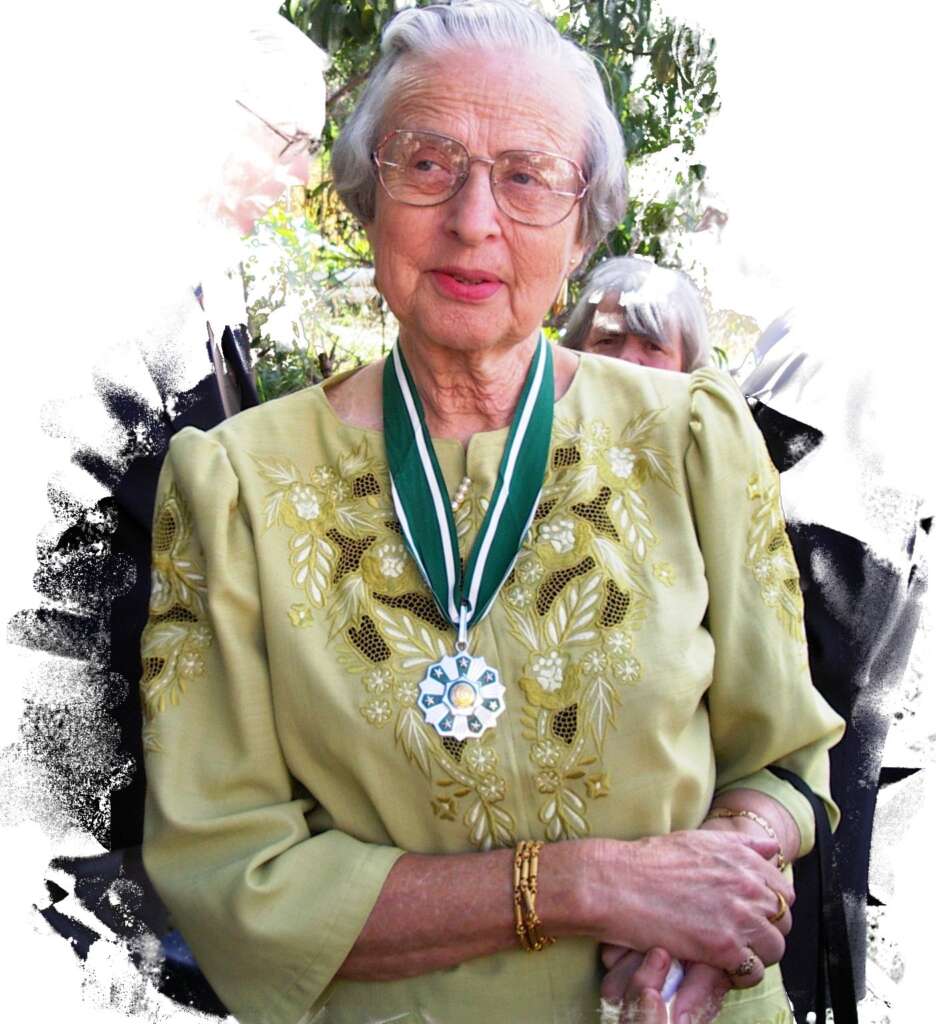
Grace Warren wearing the Star of Pakistan she was awarded in 2006.
With the worldwide Leprosy Mission turning 150 next year, the Australian branch is looking at ways of raising awareness of the work that still needs to be done.
“We still need to mark what’s been achieved and keep working on the discrimination issues,” says Clarke. “We don’t have many cases of leprosy in Australia. Praise God for that. But our role is to find the right projects to support, to help build the capacity of those projects, offering expertise sometimes, but generally offering monetary support. This mission is a great expression of gospel truths that Jesus came to seek and save the lost, and that’s spiritual and physical. As we care for those who are the most rejected and outcast, we are Christ-like.”
Email This Story
Why not send this to a friend?
